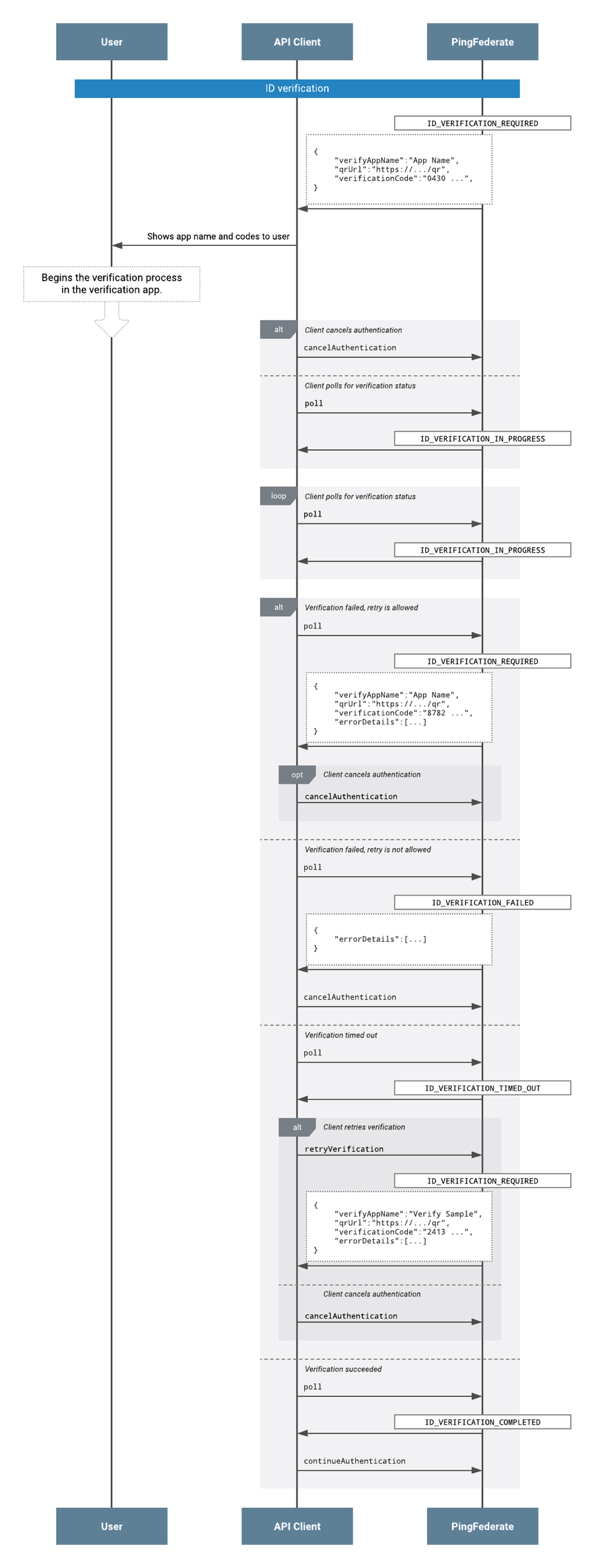Verification flow
When using the PingOne Verify IdP Adapter through the PingFederate authentication application programming interface (API), the following flow is used for verification requests.
Identity verification

-
The user completes first-factor authentication or begins the registration flow. ID verification begins when using the PingOne Verify IdP Adapter is triggered in the PingFederate authentication or registration flow.
-
PingFederate returns a status of
ID_VERIFICATION_REQUIREDin the response to the API client and provides a QR code and a verification code. -
The API client displays the QR code and verification code to the user.
-
The user completes the ID verification process in the verification app.
-
The API client invokes the poll action.
-
PingFederate returns the status of
ID_VERIFICATION_IN_PROGRESSto the API client. -
The poll action repeats until one of the following statuses occurs:
-
ID_VERIFICATION_REQUIRED-
Verification failed, but a retry is allowed
-
The user can complete (or retry) the verification process with the provided QR code and verification code
-
There are two options available to the API client:
-
Continue polling by calling
polland wait for the status to change -
Cancel the verification request by calling
cancelAuthentication
-
-
-
ID_VERIFICATION_FAILED-
Verification failed, and a retry is not allowed
-
The authentication request is cancelled
-
-
ID_VERIFICATION_TIMED_OUT-
Verification timed out
-
There are two options available to the API client:
-
Retry by calling
retryVerification -
Cancel the verification request by calling
cancelAuthentication
-
-
-
ID_VERIFICATION_COMPLETED-
Verification succeeded
-
The API client continues the flow by calling
continueAuthentication -
PingFederate returns the transaction status and user data to the API client
-
-